News | February 16, 2026
The London appointment expands the firm’s capabilities in product safety, crisis management, materials science, risk assessment, and high-stakes failure analysis.
March 29, 2025
January 2025 Edition | February 2025 Edition | March 2025 Edition | April 2025 Edition
Welcome to Secretariat’s third edition of Rebuilding Ukraine, where we explore the evolving landscape of Ukraine’s reconstruction, the challenges ahead, and the opportunities emerging. Stay informed with our insights on Ukraine’s Emerging Risks, Funding and International Support, and Sanctions & Export Controls.
Businesses and investors/funders in Ukraine will face many challenges common to conflict zones, such as corruption, regulatory uncertainties, and infrastructure deficiencies. These factors, along with the constantly evolving sanctions and international relations, contribute to a complex risk profile for governments, NGOs, and businesses operating in or considering investment in Ukraine. We explore the multifaceted nature of these business risks, offering insights into the challenges in this volatile region.
This month, the combined actions of the NACP, NABU, and SAPO against individuals, government officials, and businesses have heightened concerns about risk in areas such as bribery and corruption, contractual risks, money laundering, organized crime, and governance. Notably, these agencies have identified significant risks and vulnerabilities in public procurement and defense fortifications. The NACP has also initiated lifestyle monitoring of state tax officials to detect unjust enrichment. Additionally, NABU and SAPO have uncovered high-profile corruption and bribery schemes in key sectors such as defense, construction, procurement and energy, as well as illicit enrichment leading to state revenue loss.
The unified whistleblower reporting portal, established by the NACP, has received over 5,000 complaints of corruption. Of these, 68% pertain to corruption-related administrative offenses defined in Chapter 13-A of the Code of Administrative Offenses, 24% involve corruption-related criminal offenses defined in the note to Article 45 of the Criminal Code of Ukraine, and a further 8% concern other corruption-related violations of the law. The NACP’s whistleblower initiative highlights its crucial role in raising awareness and improving transparency and accountability in Ukraine.
The investigation status reported by the NACP
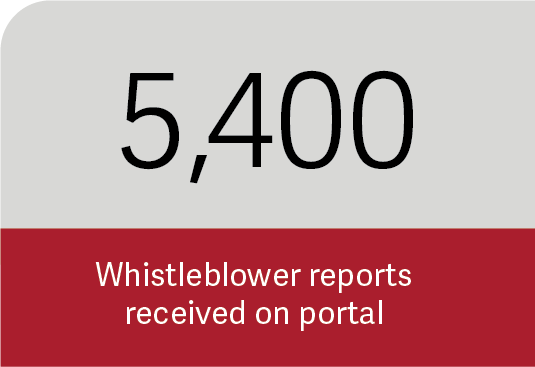
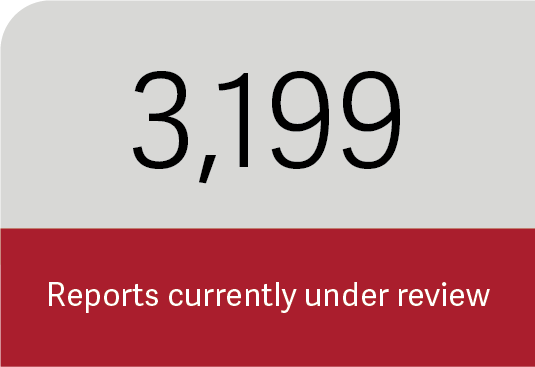
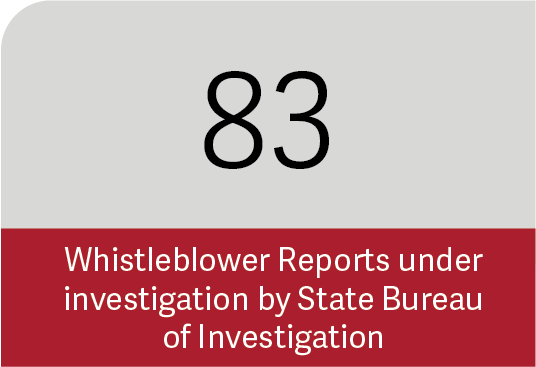
Source: https://whistleblowers.nazk.gov.ua/#/
Disclaimer: Links will redirect you to third-party websites
The funding and investment into Ukraine aims to not only alleviate the immediate impacts of the conflict, but also to pave the way for long-term stability and growth. By examining the various avenues of funding and international support, we provide an overview of the international collaborative efforts to rebuild and strengthen Ukraine’s economy and infrastructure.
The cost of Ukraine’s reconstruction and recovery is now estimated at USD 524 billion (up from USD 486 billion), an increase of 8%, according to the Fourth Rapid Damage and Needs Assessment (RDNA4) published in February 2025. According to the RDNA4, the recovery and reconstruction investment projects for 2025 is estimated at USD 17.32 billion, with USD 7.4 billion funding secured. Despite these efforts, a significant financing gap remains, underscoring the need for continued and increasing international support. Ukraine’s sector-wide summary of needs is represented in the chart below.
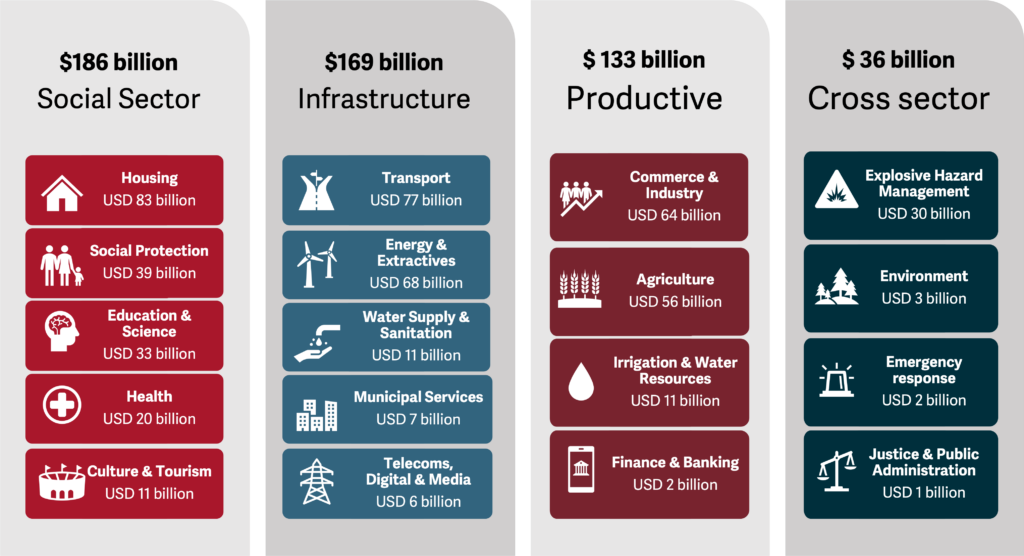
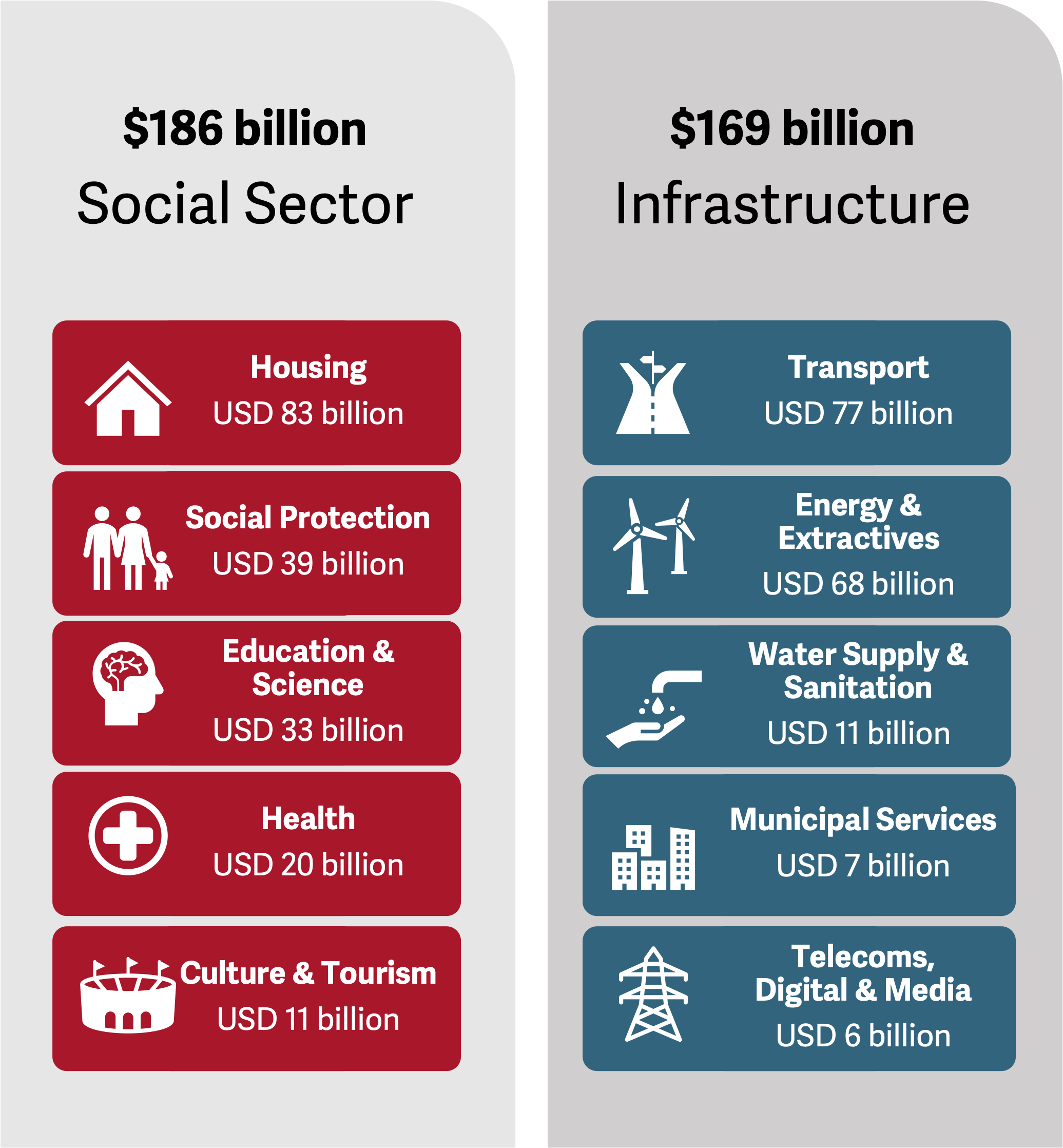
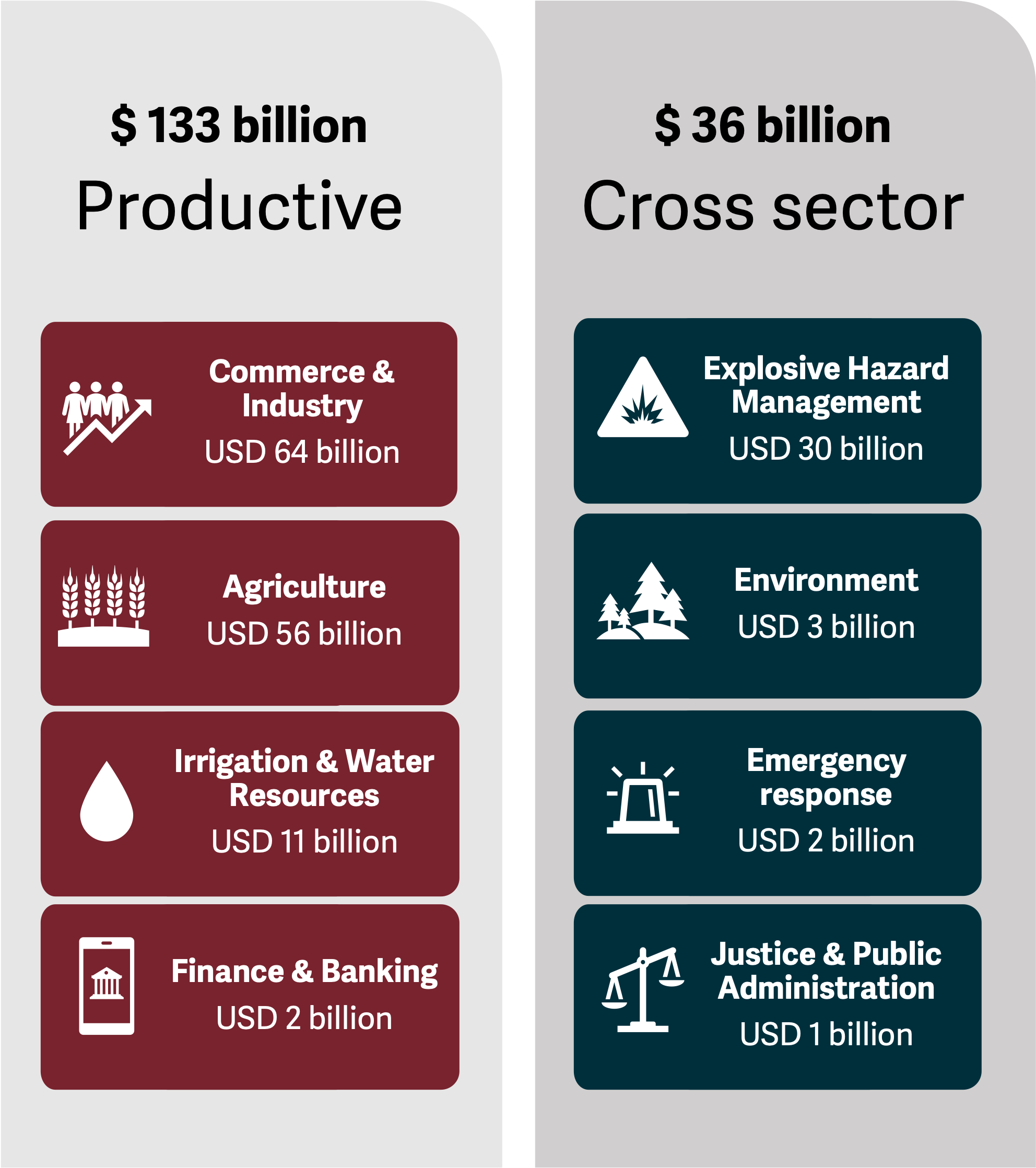
USD 283 billion of international aid was invested into Ukraine after December 2024 — for financial, military, and humanitarian needs (USD 239 as of 31 October 2024).
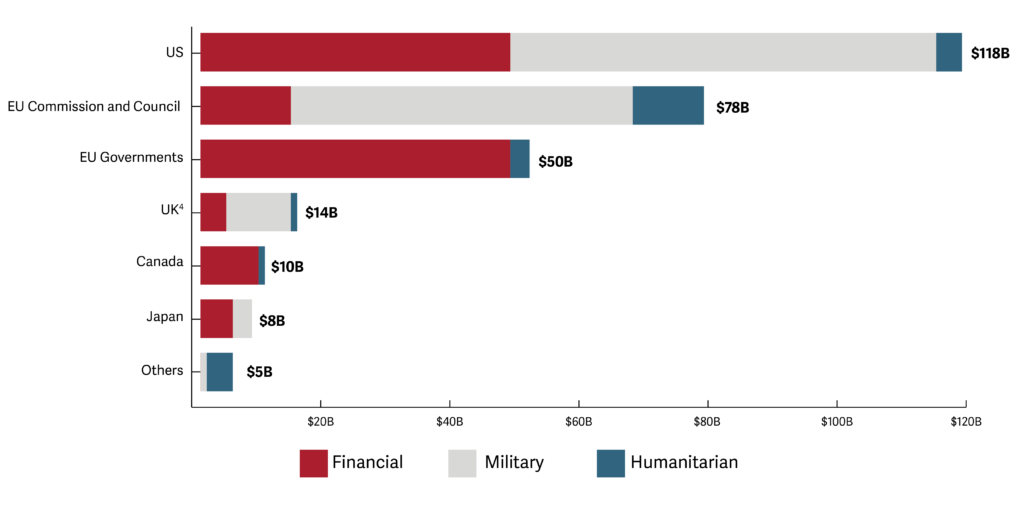
Targeted sanctions and export control regimes aim to constrain Russia’s ability to sustain its military operations. These measures have expanded to cover a wide range of individuals, entities, and sectors critical to Russia’s economy and war effort. Key targets include major financial institutions, energy companies, defence contractors, and high-profile political figures.
Russia has demanded the lifting of certain Western restrictions as part of its ceasefire terms. Meanwhile, the EU is preparing its 17th package of sanctions against Russia. The EU also imposed new tariffs on agricultural products and fertilizers from Russia and Belarus and extended individual sanctions on 2,400 individuals until September 2025.
Hover over a country for recent sanctions and export control activity

If you would like to discuss issues related to Sanctions covered in this edition, reach out to John Rademacher.
January 2025 Edition | February 2025 Edition | March 2025 Edition | April 2025 Edition
The London appointment expands the firm’s capabilities in product safety, crisis management, materials science, risk assessment, and high-stakes failure analysis.
Jimmy McCutcheon Recognized as a Rising Star of the Profession by Consulting Magazine
Secretariat is proud to announce that Jimmy McCutcheon has been recognized in Consulting Magazine’s Rising Stars 2026 awards, earning recognition for excellence in Industry-Specialization.
The Evolving SEC Enforcement Landscape: Trends for 2026
The SEC’s guidance, combined with rapid technological advancement and the boom of social media, is reshaping the current enforcement landscape. This article takes a closer look at how the SEC’s enforcement priorities shifted in 2025 and what those developments suggest for the emerging risk areas in 2026.